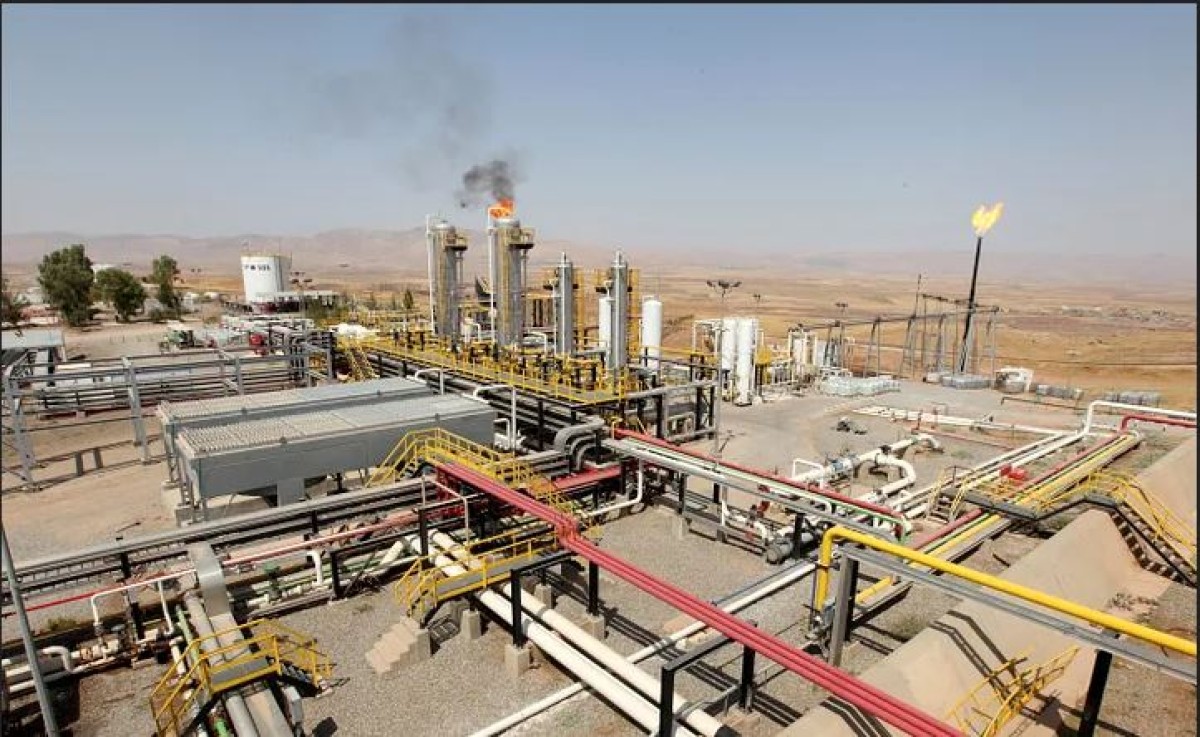1345 Views
Oil, Gas, and Treason: Kurdistan’s Silent Coup against Baghdad
Once again, the Kurdistan Regional Government (KRG) has escalated tensions with Baghdad through unilateral actions in the energy sector, sparking serious debate over national interests, constitutional authority, and the future of relations between Erbil and Baghdad. Signing new energy contracts with American companies without federal coordination exemplifies this one-sided approach and carries wide-ranging political and economic consequences.
The Kurdistan Regional Government (KRG), in what many view as a direct challenge to the authority of Iraq’s central government, has signed energy contracts worth $110 billion with American companies to develop its gas fields. Among the most significant of these agreements are deals with HKN Energy and Onex for the development of the large Miran gas field. This field, which possesses substantial potential for natural gas production, lies at the heart of the KRG’s plans to become a major player in the regional energy market.
Kurdish officials optimistically claim that Miran and similar projects could generate over $40 billion in revenue—at a time when the region faces multiple financial crises and seeks new income sources to cover budget deficits and public sector salaries. However, economic analysts question the feasibility of such revenues given export limitations and global energy price volatility.
Baghdad has reacted strongly, declaring these contracts unconstitutional and reiterating that all energy investments must be approved by the central government. The Iraqi Ministry of Oil has repeatedly called these agreements illegal and reserved its right to take legal action to protect Iraq’s national interests.
According to Article 111 of Iraq’s Constitution, oil and gas are national assets that must be managed collectively and with federal oversight. Baghdad insists that unilateralism in energy matters not only undermines national sovereignty but also risks deepening ethnic and regional divides, disrupting equitable revenue distribution, and hindering Iraq’s reconstruction and federal integrity.
The Kurdish regional leaders hope that by attracting foreign investment—particularly from Western companies—they can strengthen their political position in the region and use it as leverage in negotiations with the central government to advance their separatist ambitions.
The U.S. has embraced this deepening relationship, evidenced by its plan to construct the world’s largest consulate in Erbil. Still, over-reliance on foreign support while ignoring federal authority could isolate the KRG both domestically and regionally.
However, this strategy is not without risks. Excessive reliance on foreign support and disregard for the central government’s considerations could lead to further isolation of the Kurdistan Region within Iraq and the broader region. Moreover, history has shown that global powers primarily pursue their own interests in foreign policy, and their support for regional actors is often conditional and unstable.
The conflict between the Kurdistan Region and the Iraqi central government over energy issues reflects a deeper crisis of trust and the lack of a clear, mutually agreed-upon legal framework for managing natural resources in the country. The continuation of this situation not only harms Iraq’s national interests but could also impact the stability and security of the entire region.
In sum, the unilateral actions of the Kurdistan Regional Government in the energy sector—carried out without coordination with the central government—are not only unconstitutional, but they also endanger Iraq’s national interests. To preserve Iraq’s political and economic stability, it is essential that all energy contracts be executed with the coordination and approval of the central government. Cooperation and alignment between the Kurdistan Region and the central government can lead to the optimal utilization of natural resources and the strengthening of Iraqi national unity.
*Translated by Ashraf Hemmati from the original Persian article written by Mohammad Saleh Ghorbani

Comment
Post a comment for this article